France pleads with Gulf states not to isolate Lebanon in diplomatic row
France said Lebanon should be able ‘to count’ on its neighbours
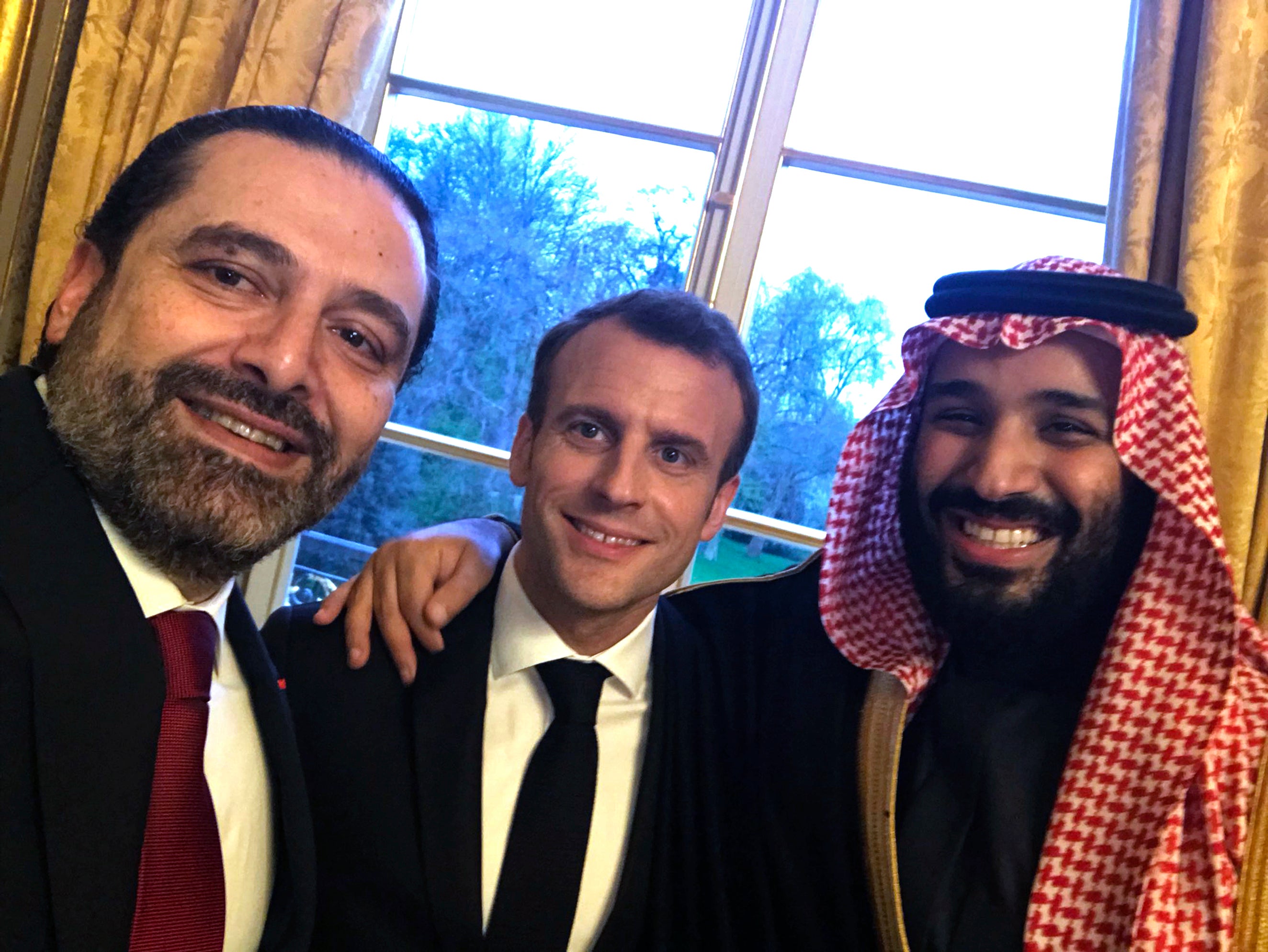
France has urged the Gulf not to isolate Lebanon saying it needs to count on its regional partners for help, as a bitter diplomatic spat has deepened between the embattled Mediterranean country and its neighbours.
Saudi Arabia, Kuwait, Bahrain and UAE withdrew their ambassadors from Beirut and expelled the Lebanese envoys within their countries after Lebanese Information minister George Kordahi publicly criticised the Saudi-led war against the Houthis in Yemen.
Riyadh later recalled its citizens and banned Lebanese imports, undermining the small nation’s foreign trade and depriving it of millions of dollars as it struggles through one of the worst economic collapses in modern history.
Alarmed, France, one of Lebanon’s closest allies, said it was crucially important that the country be left out of broader regional crises.
“The dissociation of Lebanon from regional crises is of essential importance,” foreign ministry spokeswoman Anne-Claire Legendre told reporters on Thursday.
“Lebanon must be able to count on all of its regional partners to support it on the path to reforms and the way out of the crisis,” she added.
A spokesperson for the foreign ministry added it was essential that Lebanon be able to rely on its neighbours for assistance.
The Gulf row has not only threatened to destabilise Lebanon’s flailing economy but has also driven a wedge in the country’s fragile government which was formed barely two months ago after a year of political deadlock and bitter negotiations.
On one side are those supporting Mr Kordahi who has repeatedly refused to step down saying that the remarks were filmed in August before he became a minister. Among his support base is the parliamentary bloc of Iran-backed Lebanese militant group Hezbollah whose spokesperson was quoted by local TV as saying the “ Saudi reaction… amounts to waging war.”
On the other hand, Prime minister Najib Mikati appeared on Thursday once again to call for the resignation of Mr Kordahi, saying that he needed to "prioritise national interest" as they presented a difficult challenge to the government.
"I repeat calls for the information minister to listen to his conscience and take circumstances into consideration and take the stance he should take," Mikati said without explicitly asking him to step down.
Saudi Arabia’s ties with Lebanon have been strained for years largely due to the growing role Hezbollah has taken in the country and what the Gulf sees as the encroaching presence of Iran in the region.
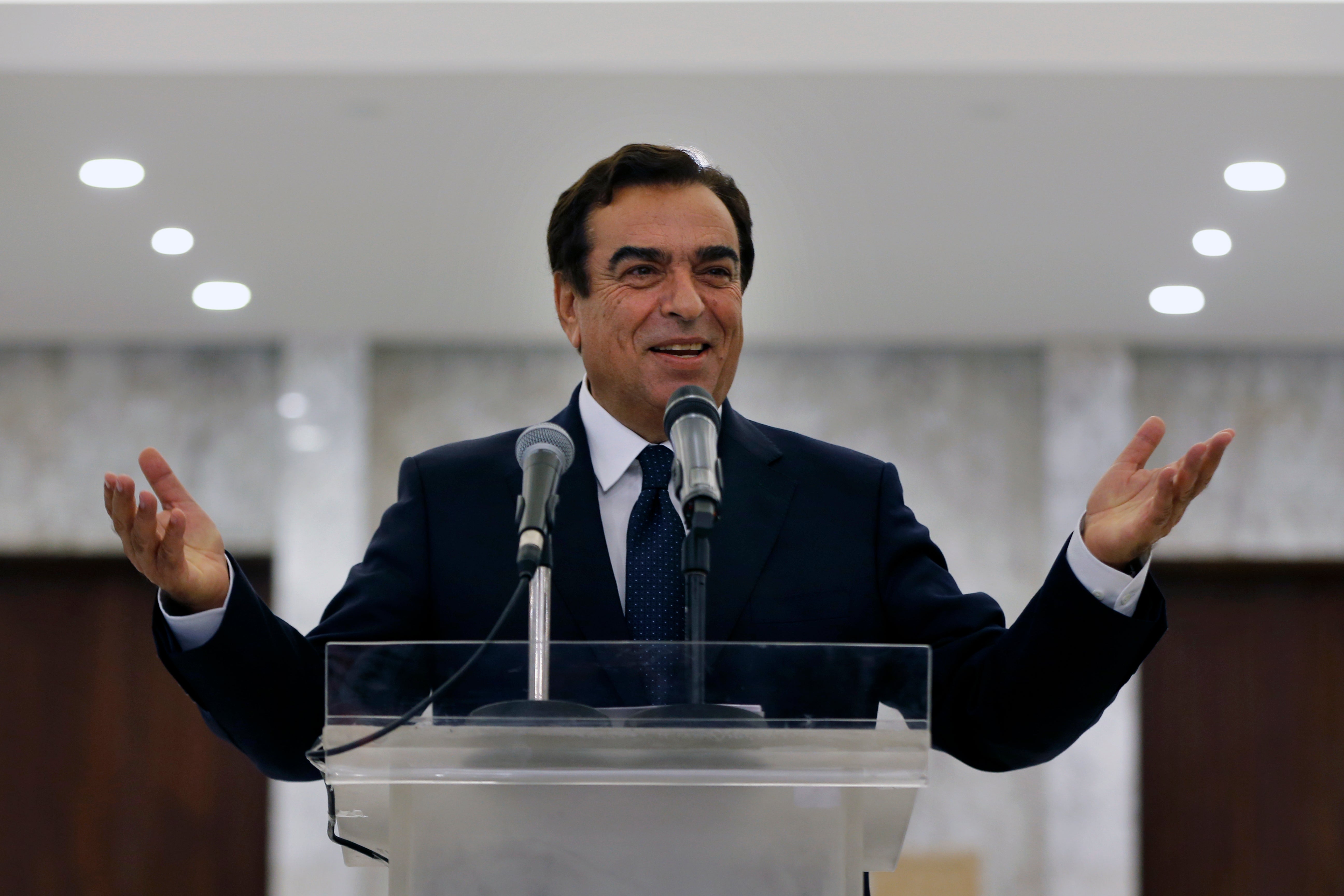
Those tensions only flared with the emergence of the interview in which Mr Kordahi said Yemen was subjected to aggression and that its Iran-aligned Houthis were defending themselves. Riyadh has said Kordahi’s comments were a symptom of Hezbollah’s and Iran’s dominance.
This has only been made worse by leaked audio recordings published on Wedneday by Saudi paper Okaz of Lebanon’s foreign minister Abdullah Bou Habib apparently downplaying the importance of financial help from Saudi Arabia while implying the Gulf was asking too much in demanding the end of Hezbollah.
Being isolated by the Gulf threatens to plunge Lebanon into greater financial woes. While countries like Saudi Arabia have distanced themselves financially from Lebanon over the years, Lebanon relies on its ability to export abroad to the Gulf and also from remittances coming from Lebanese living in the countries like the UAE.
On Thursday Mr Mikati said on Twitter he had agreed with President Michel Aoun on a "roadmap" to solve a diplomatic row with Saudi Arabia, according to a Lebanese presidency post on Twitter.
Join our commenting forum
Join thought-provoking conversations, follow other Independent readers and see their replies
Comments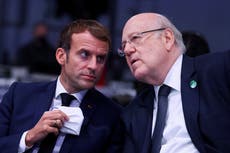
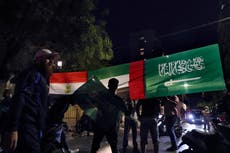
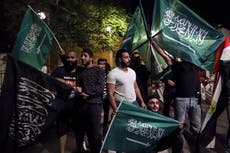
Bookmark popover
Removed from bookmarks